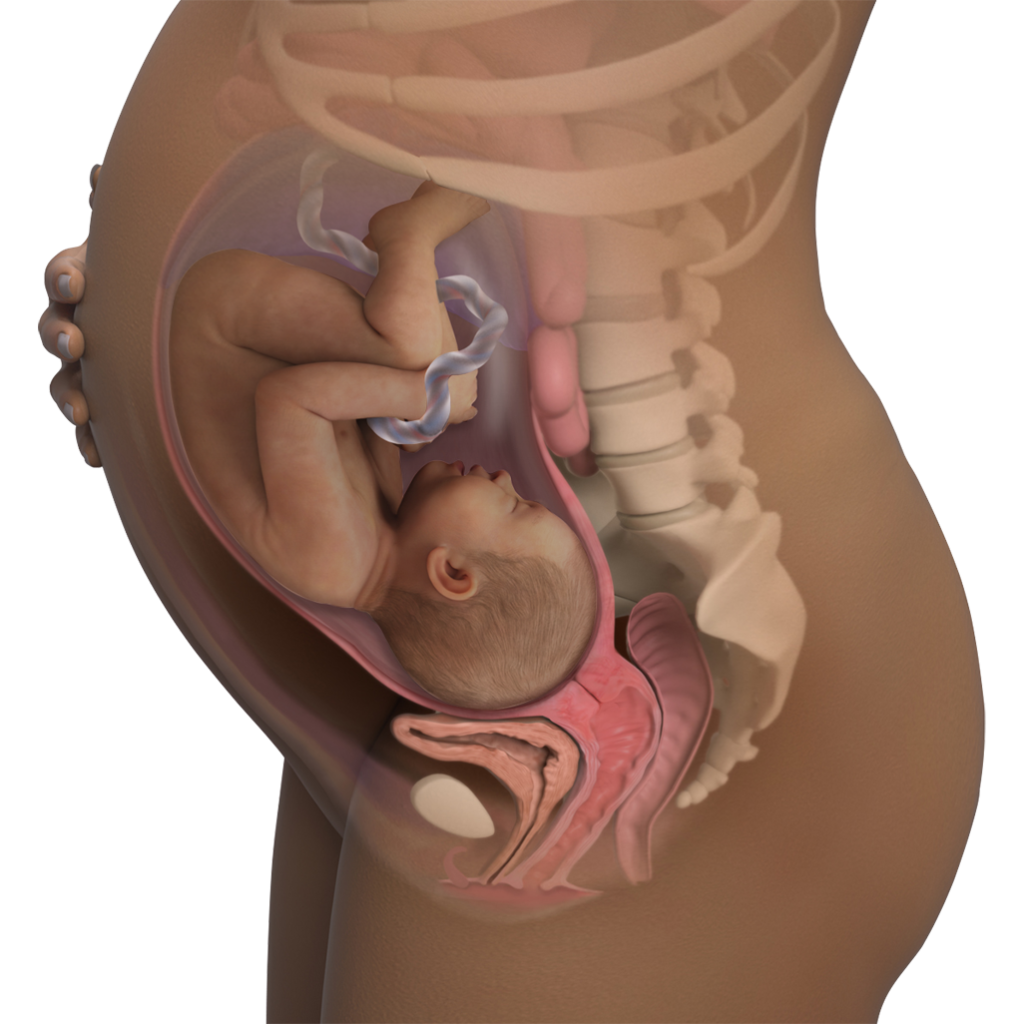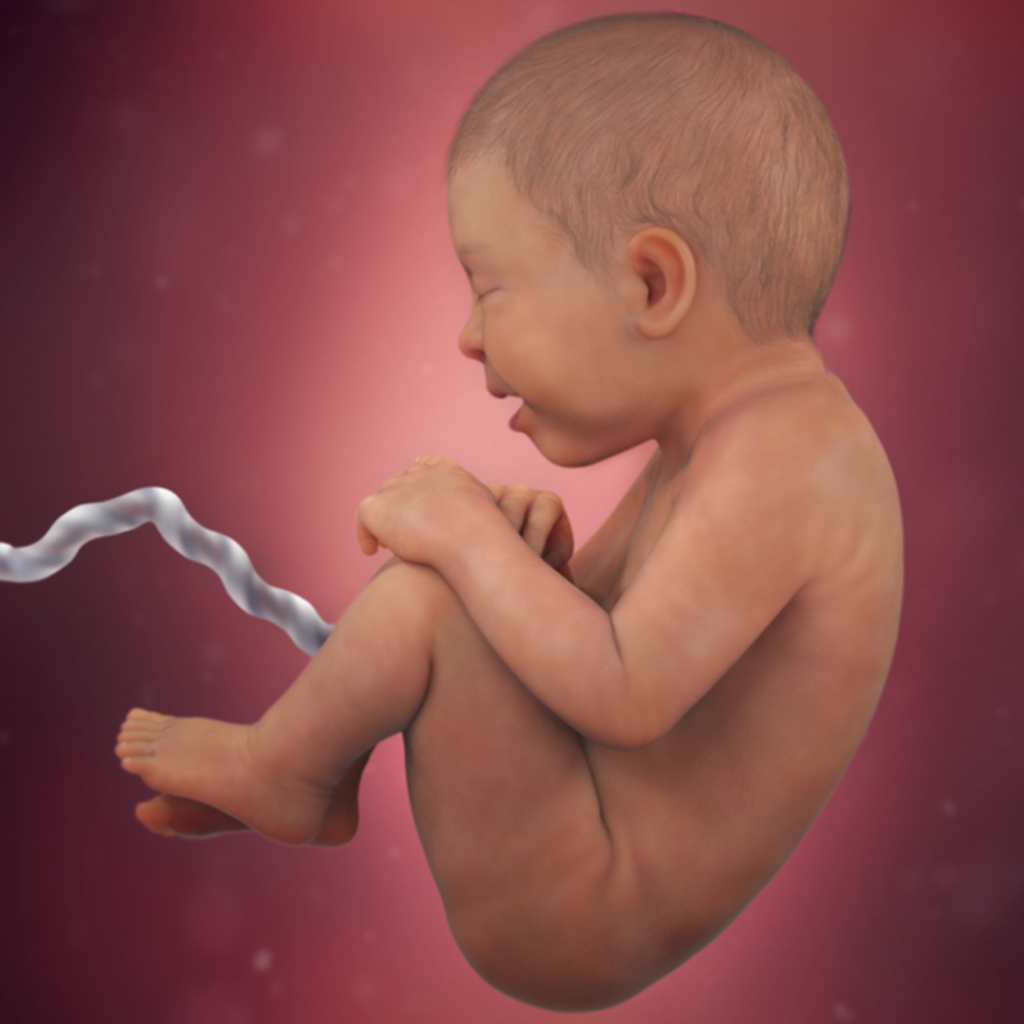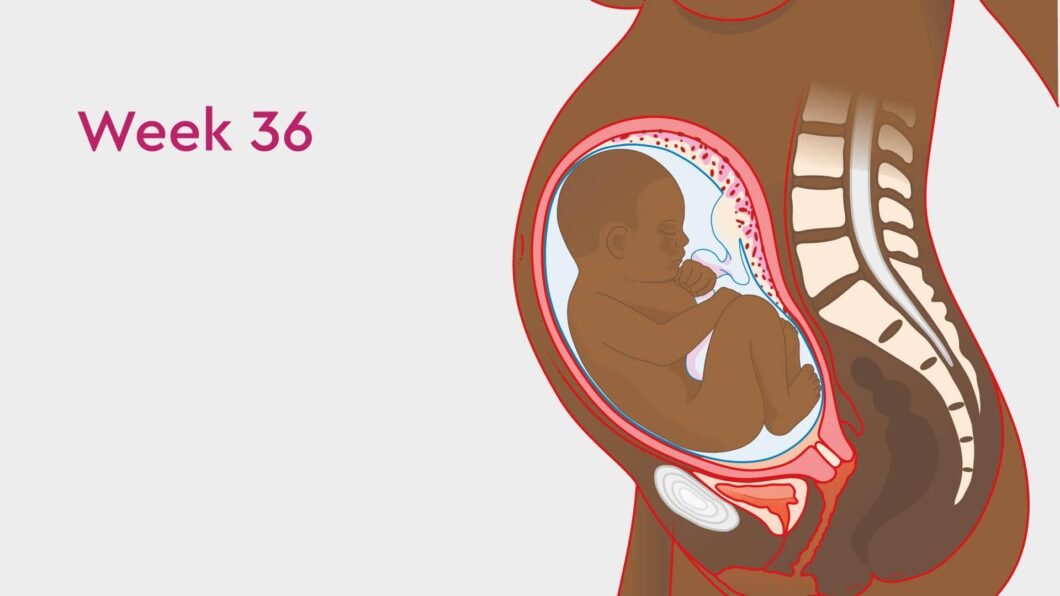During the 36th week of pregnancy, both the mother and the baby experience significant changes and preparations for childbirth:
For the Mother:

- Increased Discomfort: As the baby continues to grow, the mother may experience increased discomfort, particularly in the pelvic area and lower back. Pressure on the bladder may lead to more frequent urination, and Braxton Hicks contractions may become more noticeable.
- Nesting Instinct: The nesting instinct, characterized by a strong urge to prepare the home for the baby’s arrival, may intensify during the 36th week. Mothers may feel compelled to clean, organize, and make final arrangements for the nursery.
- Fatigue: Fatigue may become more pronounced as the mother’s body prepares for labor and delivery. Difficulty sleeping due to discomfort or anxiety about the upcoming birth may contribute to feelings of exhaustion.
- Emotional Changes: Hormonal fluctuations and the anticipation of childbirth may lead to heightened emotions and mood swings. It’s essential for mothers to seek support from their partner, family, or healthcare provider if they’re feeling overwhelmed or anxious.
For the Baby:

- Weight Gain: The baby continues to gain weight steadily during the 36th week, primarily focusing on adding layers of fat for insulation and energy reserves. This weight gain contributes to the baby’s overall growth and development.
- Fetal Positioning: By the 36th week, most babies have settled into a head-down position in preparation for birth. However, some babies may still be in a breech or transverse position, requiring monitoring and potential interventions to facilitate optimal positioning for delivery.
- Practice Breathing: The baby’s respiratory system continues to mature during the 36th week, with increased practice breathing movements. This practice helps strengthen the baby’s lungs and prepares them for breathing air after birth.
- Less Fetal Movement: Due to limited space in the uterus, the mother may notice slightly less fetal movement during the 36th week. However, mothers should still monitor fetal movement patterns and report any significant changes to their healthcare provider.
Overall, the 36th week of pregnancy marks a critical stage in the final weeks of gestation. Mothers should attend regular prenatal appointments, monitor their symptoms closely, and prepare for the upcoming birth by discussing birth plans and packing a hospital bag.
Visited 16 times, 1 visit(s) today

